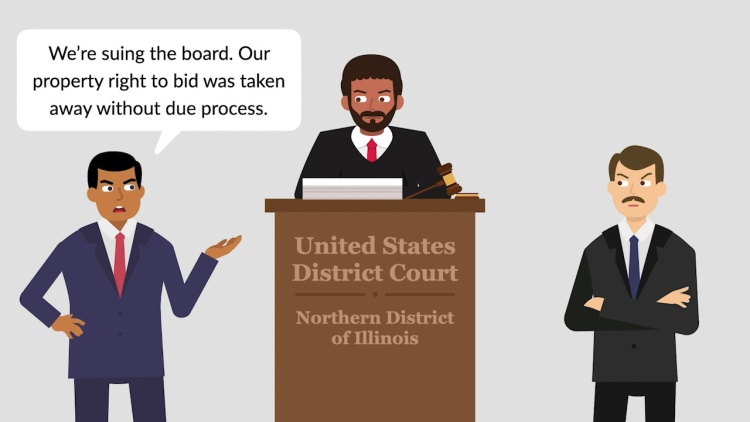Coyne-Delany Co. v. Capital Development Board
United States Court of Appeals for the Seventh Circuit
717 F.2d 385 (1983)

- Written by Josh Lee, JD
Facts
The Capital Development Board (board) (defendant) bid out a contract to replace plumbing fixtures in a state prison. Coyne-Delany Co. (CD) was awarded a subcontract for toilet-flush valves in the first phase of the project. The valves malfunctioned, were replaced, and again malfunctioned. For the second phase of the project, the board required all bidders to use CD’s competitor. After bids were received in May 1979, CD sued the board under 42 U.S.C. § 1983 and obtained a temporary restraining order prohibiting the board from opening the bids. The board requested that CD be required to post a $50,000 bond due to the potential expense of delaying the project. The trial court required only a $5,000 bond and issued a preliminary injunction without increasing the bond. The trial court determined that CD was likely to prevail on the merits based on having a property right in the ability to bid that was taken away without due process. Subsequently, the Illinois Supreme Court issued a decision holding that a bidder has no property right in being able to bid on a public contract. The preliminary injunction was reversed by the United States Court of Appeals for the Seventh Circuit on February 22, 1980. The board discovered that the low bid on the project was $214,000 but the bid was conditioned on a deadline that had passed. The board rebid the project, and the lowest bid received was $270,000. The Board then sought $56,000 in damages against CD and its surety for the wrongfully issued injunction. The trial court declined to award any damages, and the board again appealed to the Seventh Circuit.
Rule of Law
Issue
Holding and Reasoning (Posner, J.)
What to do next…
Here's why 907,000 law students have relied on our case briefs:
- Written by law professors and practitioners, not other law students. 47,100 briefs, keyed to 996 casebooks. Top-notch customer support.
- The right amount of information, includes the facts, issues, rule of law, holding and reasoning, and any concurrences and dissents.
- Access in your classes, works on your mobile and tablet. Massive library of related video lessons and high quality multiple-choice questions.
- Easy to use, uniform format for every case brief. Written in plain English, not in legalese. Our briefs summarize and simplify; they don’t just repeat the court’s language.





